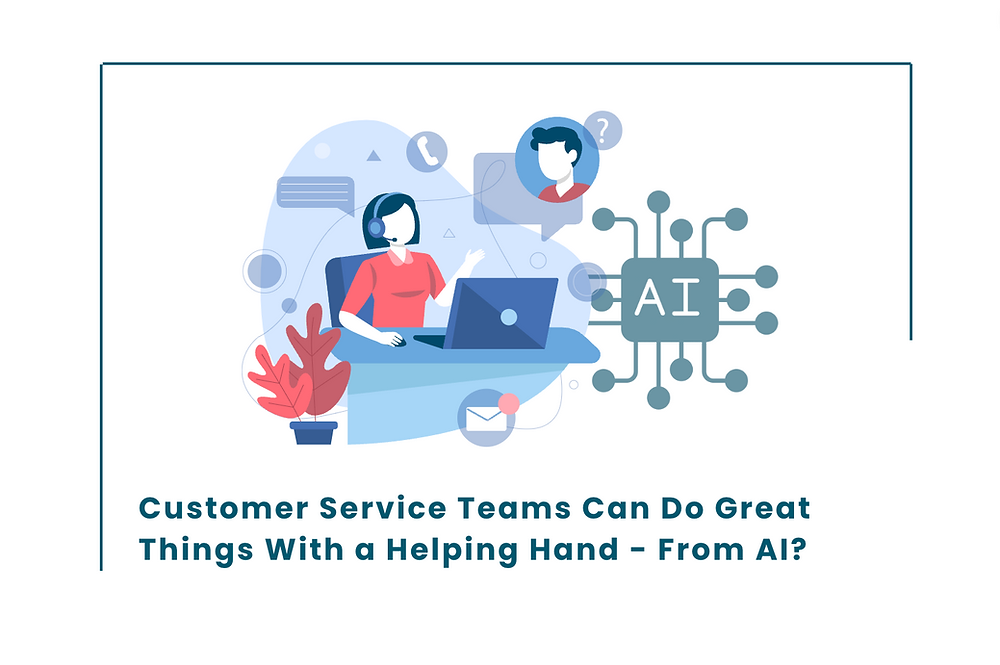An entrepreneur we’ll call Mickey faced a problem quite common to businesses in practically every industry. Her HVAC repair company does a great job in keeping its equipment in running order, and her team of technicians has an awesome reputation for efficiency and fairness—but her customer service team? Unfortunately, it leaves those same people with a bad taste in their mouth.
You see, Mickey faces problems plaguing the customer service function at organizations, both large and small. Customer service is often a confusing job with conflicting instructions from different internal sources, like sales reps, leaving employees feeling like they are spinning their wheels. According to a recent article published on LinkedIn, half of support teams surveyed by Business 2 Community are comprised of reps with less than one year of experience with the company.
Constantly throwing new customer service reps into the action with little knowledge causes major headaches for companies like Mickey’s. Nowadays, it seems like practically everyone has a story of businesses like restaurants and retail stores that they now avoid working with due to poor service. According to a recent survey published in ASU News: “More than two-thirds of the 1,000 people polled experienced a product or service problem in the previous 12 months and nearly two-thirds of them said it made them ‘very’ or ‘extremely’ upset—feeling ‘customer rage.’” Even so, too often than not, business leaders fail to realize poor service is a leading cause of losing business in the B2B environment as well.
To this point, Harvard Business Review maintains that customer service is bad because companies are more profitable when they don’t invest in robust customer support. This logic may hold true for certain outfits like airlines because consumers don’t have many choices on how they will fly. But for services business in a competitive market, it’s a whole different story. Survey data backed up Mickey’s initial concern that she will continue to hemorrhage customers if her team didn’t up their customer service game.
This insight is backed up by research. Forbes recently reported on a survey administered by Stella Connect considering customer attitudes towards the support function of their vendors. 50% viewed customer service as a deciding factor on doing business with a company. 33% also claimed that they had ended a vendor relationship due to poor service. Also, if your own business deals with a younger demographic, it’s more crucial to have good customer service. 42% of millennials have dumped a vendor over bad treatment.
Clearly, Mickey was 100% spot-on to be concerned about fixing her business’ reputation for shaky support. After we were brought in, my company Louder Co., began by reviewing Mickey’s current customer service challenges. Her support reps had a difficult job. They had to use multiple systems to communicate with customers and the company’s own parts vendors, along with HVAC manufacturers.
In this arrangement, wires often got crossed, resulting in the wrong parts being ordered and customers stuck without air conditioning or heat for longer than necessary. Mickey’s team still did a good job sourcing passionate customer advocates who had the right skills to provide excellent service, however, confusing systems and competing priorities led to extremely high turnover for frustrated employees. Our next step was to demonstrate to Mickey that AI could provide the missing piece of the customer service puzzle.
Our advantage? Louder Co.’s team of AI experts enable our clients to find the best solution for their needs from an entire universe of AI-driven marketplace solutions instead of limiting options to just a few vendors. Based on Mickey’s description of her company’s problems and our own observations and research, we realized the right tool for her is one that empowers customer service reps to quickly resolve customers’ complex requests without errors. Based on this requirement, we recommended TalkDesk and its revolutionary Agent Workspace tool.
TalkDesk’s Agent Workspace unites disparate information and systems customer service reps need to do their job in a “single pane of glass.” The powerful AI service enables support teams to seamlessly move between different data sources, such as vendors’ parts catalogs, without having to jump from website to website or even resort to paper copies, as some of Mickey’s reps previously did. Best of all? There was practically no learning curve. Compared to the complex rat’s nest of systems and websites the company’s service employees once relied upon, having a single info source was a dream come true.
The impact on Mickey’s business was immediate. Her customer service team now felt empowered to do a good job for the first time. Plus, employee engagement rose at the same rate as customer satisfaction scores. What was once a weak point in the company’s offering was suddenly a leading source of customer loyalty—and all it took was the right AI customer service platform.
Contact Louder Co. today to learn how we can help you transform your own customer service from a high turnover and low engagement problem into a revitalized—and profitable—source of customer and employee satisfaction.

